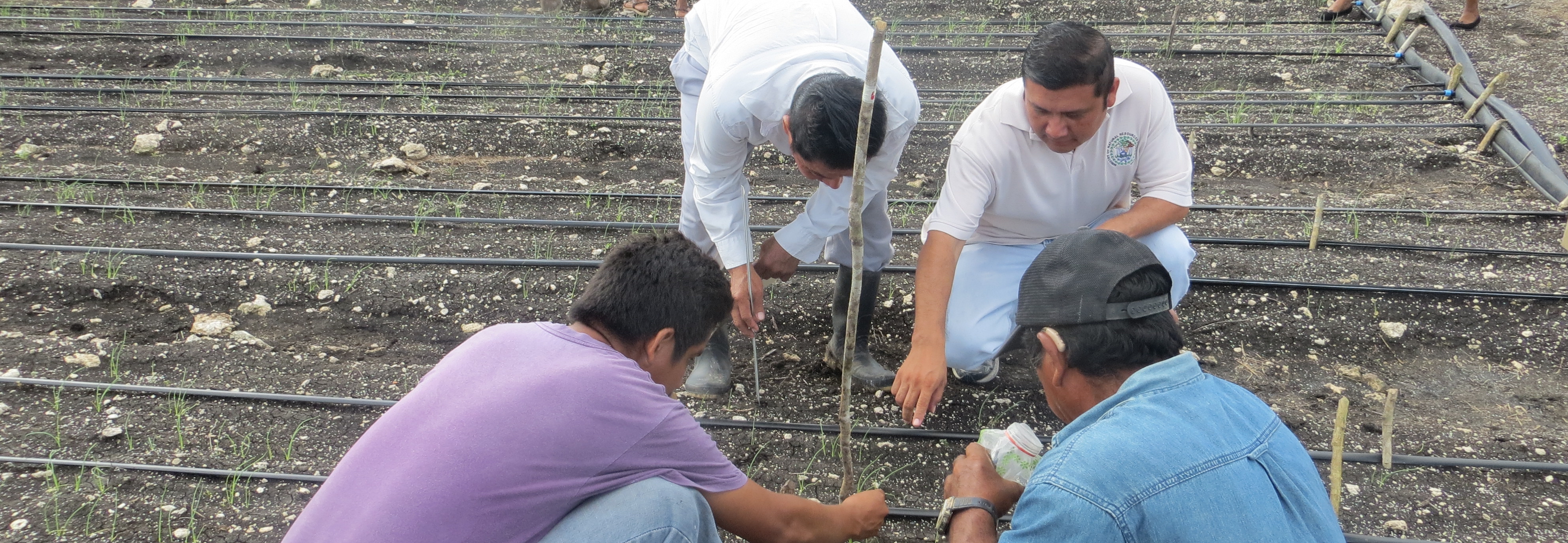
Photo:
Belize is an upper middle income-country and Small Island Developing State (SIDS) located on the northeast coast of Central America. In addition to the mainland, the country is comprised of over 400 small islands. Despite the country’s relatively small size, over 50 percent of the population lives in rural areas, where labor in agriculture is prevalent. The agricultural sector contributes to 14 percent of the country’s GDP, employs 17 percent of the labor force, and is the second most important source of the country’s foreign exchange. This sector, including livestock and fisheries, is key in providing the base for enhanced economic growth of the country, especially in rural areas, whilst contributing to poverty alleviation.
Although Belize is ecologically diverse with the largest coral reef in the Americas and an extensive mangroves ecosystem, the country is recognized as highly vulnerable to the current and projected negative impacts of climate change. Warmer temperatures, risks of increased drought, increased flood, increased storm, and hurricanes, as well as increased coastal erosion, water availability and higher sea levels, have been forecasted as the most significant climate change impacts in Belize.
- National
- National Governments
- Private Sector Partners
- United Nations Development Programme (UNDP)
- Food and Agriculture Organization of the United Nations (FAO)
- United Nations Development Programme (UNDP)
- Government of Belize
Belize first began formulating its National Adaptation Plan (NAP) in 2015, during which the country assessed the agriculture sector and evaluated its vulnerability and adaptation to climate variability, as well as established an action plan. In 2016, the country submitted its Nationally Determined Contribution (NDC), which was updated in 2021. The NDC includes target to reduce the country’s GHG emissions from the livestock sector by 10 percent by 2030. The NDC made a further commitment to improve crop and livestock husbandry practices to target droughts and to adopt improved soil and water management measures.
To attain the NDC’s targets, the country’s National Climate Finance Strategy prioritized identifying finance options and donors for climate-smart agriculture and adaptation actions, recognizing a funding gap of US$72 million. Belize’s ongoing Medium-Term Development Strategy, unveiled in 2022, was established to further sustainable development towards the NDC’s targets by emphasizing implementation efforts in terms of climate-resilient and sustainable agriculture projects with a continual focus on increasing food production capacity. This plan is supplemented by the National Landscape Restoration Strategy, which plans to improve the management of 80,000 hectares of agro-landscape and to bring 30,500 hectares under sustainable agriculture systems.
The country’s national efforts at green development have been supported by outside entities, such as the Inter-American Development Bank (IADB), who conducted an assessment to improve livestock productivity and climate resilience and whose work highlighted the need for a value chain analysis and a climate-smart strategy for the livestock sector. In response to this, the country has begun planning the implementation of silvopastoral systems that will be adopted to both enhance productivity and resilience to the impacts of climate change by improving livestock genetics for small farmers and setting up field training stations to enhance farmers' technical capacity.
The proposed climate actions in Belize include financing over 2,000 farmers for the establishment of agro/silvo/pastoral systems that allow adaptation to climate variability while preserving and recovering soils, promoting investment in the livestock industry and providing assistance to mobilize complementary investment and incentives for developing livestock industries across all value chain aspects for diversified market access.
These are aligned with the country’s NDC priorities that identify the reduction of livestock emissions through the implementation of good silvopastoral practices, and facilitation of greater public-private initiatives to implement cost-effective measures to address livestock production and improve soil quality as being in the interest of building resilience to climate change.
To attain these objectives, and to strategically contribute to Belize’s NDC and NAP targets, the government of Belize requests assistance from the SCALA Private Sector Engagement Facility to conduct a value chain assessment and exploratory national market analysis for sustainable beef cattle value chain products. It is expected the intervention can inform climate policy and support the design of climate-resilient and gender responsive interventions.
Scope of work
Adaptative approaches including precision grazing and silvopastoral systems, improved pastures quality, soil carbon storage, promotion of efficient use of water and better livestock feeding practices.
Activities include:
- Sustainable Beef Cattle Value Chain Assessment (VCA)
- Market and Financial Analysis
- Actionable Roadmap and Strategic Recommendations
- Validation workshop

